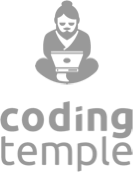Introduction to Anthropology and Its Subfields
- Introduction to Anthropology and Its Subfields
- Cultural Relativism and Ethnocentrism
- Fieldwork and Ethnographic Methods
- Kinship, Marriage, and Family
- Economic Systems and Subsistence Strategies
- Religion, Magic, and Worldview
- Language and Communication
- Art, Music, and Expressive Culture
- Political Systems and Social Control
- Applied Anthropology and Contemporary Issues
- Introduction to Anthropology and Its SubfieldsReview Assignment
- Cultural Relativism and EthnocentrismReview Assignment
- Fieldwork and Ethnographic MethodsReview Assignment
- Kinship, Marriage, and FamilyReview Assignment
- Economic Systems and Subsistence StrategiesReview Assignment
- Religion, Magic, and WorldviewReview Assignment
- Language and CommunicationReview Assignment
- Art, Music, and Expressive CultureReview Assignment
- Political Systems and Social ControlReview Assignment
- Applied Anthropology and Contemporary IssuesReview Assignment


























